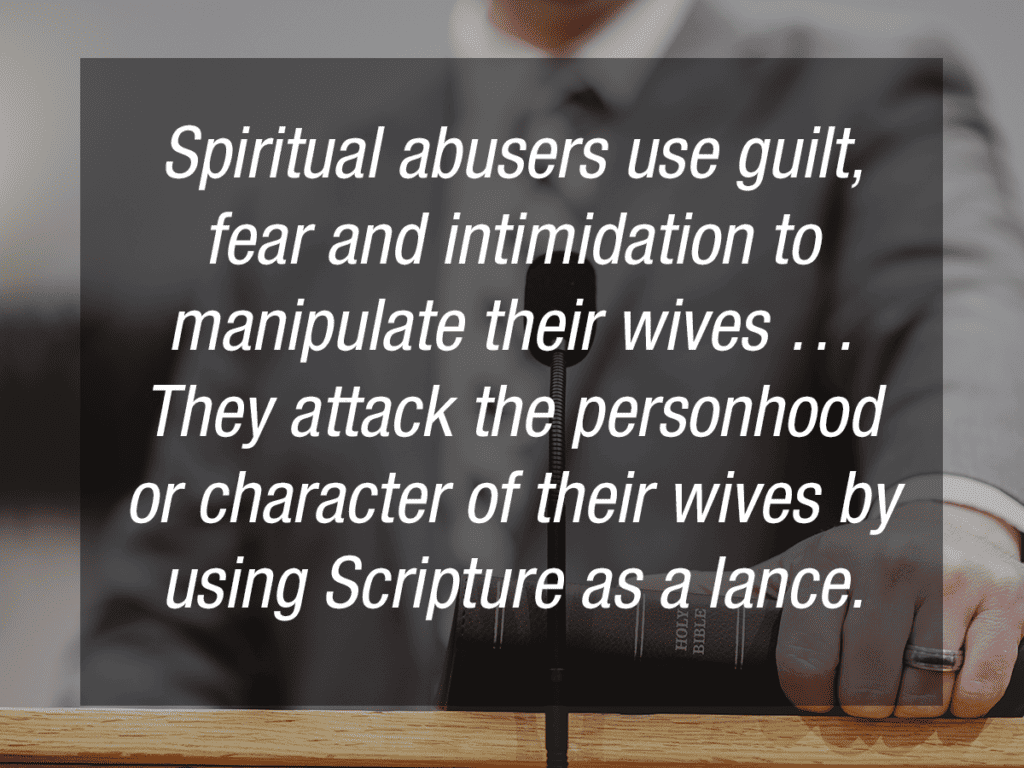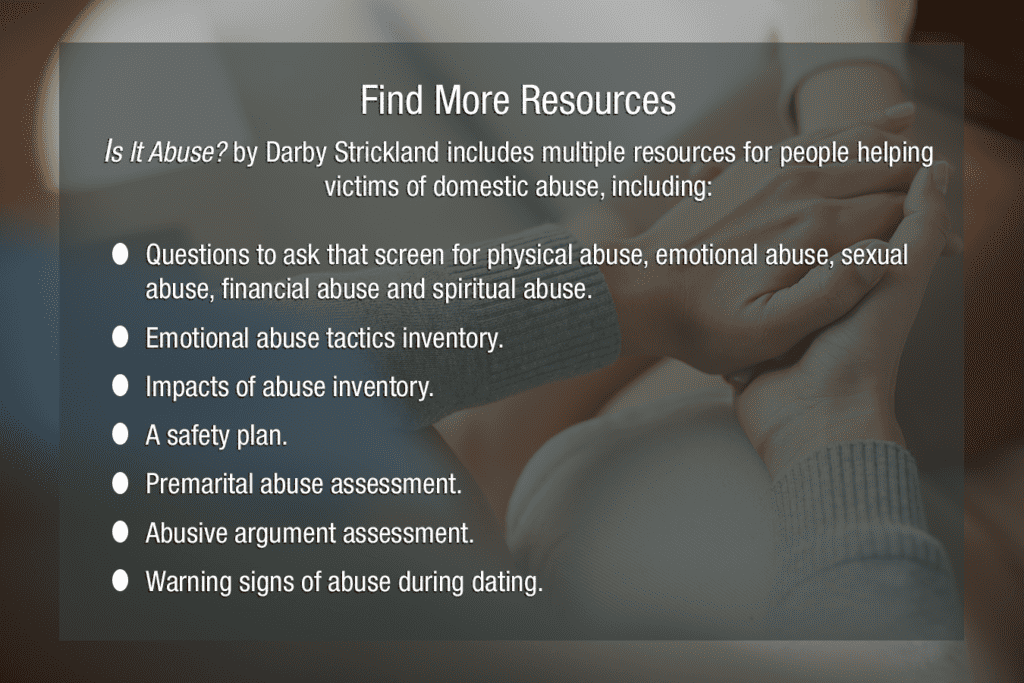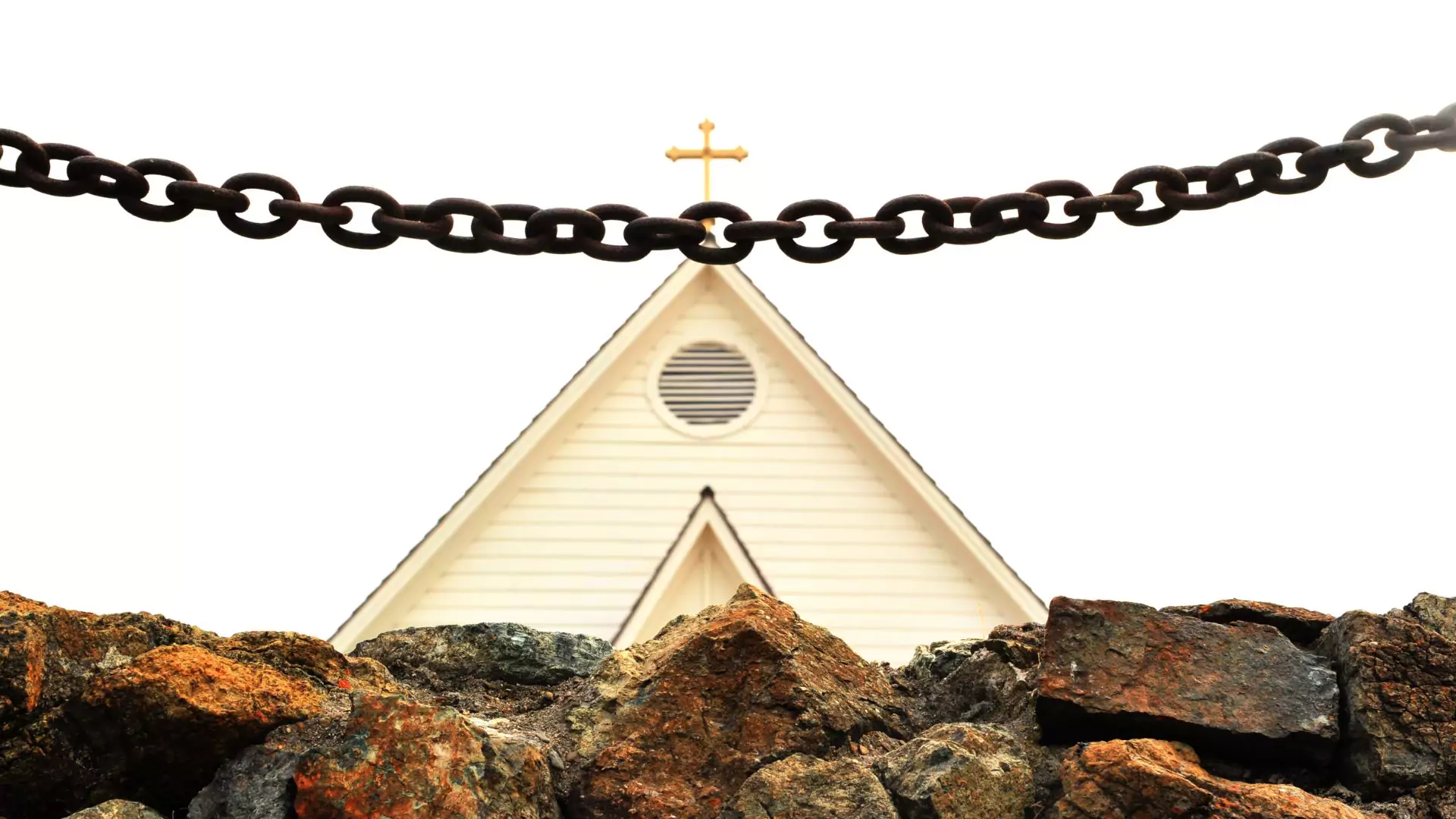Estimated reading time: 13 minutes
Everybody has heard of physical and sexual abuse. Most people know about verbal and emotional abuse as well. But what does spiritual abuse mean? Spiritual abuse in marriage can be defined by someone berating their spouse with prayers or using Scripture against them out of context. There are signs to look out for that will indicate if you are dealing with a spiritually oppressive husband. In this article, we’ll talk about what the Bible says about abuse and provide Bible verses for abuse victims and those wanting to help them. Spiritual or religious abuse is just as serious and damaging as any other form of abuse.
Table of contents
What Is Spiritual or Religious Abuse in Marriage?
When I asked Beth* how her husband, Joe, prayed for her, she shared the most recent example.
“Last week he asked God to help me not to be so selfish and greedy and for Jesus to deliver me from the evils that plague me. He pleaded with God to watch over me because I can’t be trusted.”
Through her tears, she continued to describe his prayer. “He said that my inability to control myself means that I hate God and that God would be right to cast me out of His kingdom.”
Beth went on to say that Joe had prayed, “No one can serve two masters. Either you will hate the one and love the other, or you will be devoted to the one and despise the other. You cannot serve both God and money” (Matthew 6:24).
And, if that were not bad enough, she finished by saying, “He pleaded with God to grant him the ability to tolerate what God himself barely can.”
Why had Beth’s husband, an elder at their church, prayed this way? This had been his response to Beth’s overspending on groceries for their family of nine by six dollars.
After years of her spiritually oppressive husband praying Scripture over her in this way, Beth found it nearly impossible to open her Bible without believing that God was condemning her. Just as her husband had insinuated. This shattered her. Praying had become nearly impossible for her. Worse, she began to confuse the words of her abuser for what God said about her in the Bible. She had come to believe she was unworthy of the Lord and His care because of her husband’s spiritual abuse.
Men may be victims of domestic abuse, and Darby Strickland’s advice can be applied to them. Strickland addresses wives specifically in her advice since 85 percent of domestic abuse victims are women and Strickland’s counseling experience is with women.
The Definition of Spiritual Abuse in Marriage
Spiritual abuse occurs when an oppressor establishes control and domination by using Bible verses, doctrine, or his “leadership role” as a weapon. This form of abuse can be subtle, because it can mask itself as religious practice. These are signs of spiritual abuse:
- A husband exhibits control-oriented leadership over his wife
- Lords his power over her
- Demands submission from her
- Uses Scripture in shaming and punishing ways
When a spiritual abuser twists Scripture and uses it to attack, his religious abuse can feel as though it comes from God Himself through the Bible. Even though he is taking Scripture out of context, distorting it and weaponizing it, the oppressor is using God’s words — so it can seem as if God is the one doing the shaming.
Spiritual abuse is a close cousin to emotional abuse by definition, except it’s more profoundly wounding as it often leaves victims isolated from God. Since it uses God and His Word to dominate and scold, victims can find it hard to separate the abuse from their understanding of who God is or of how the Bible says He sees them.
Spiritual Manipulation: Does He Use Scripture Against You?
When husbands use Scripture to control and criticize, however, they are using it in the exact opposite way from what God intends. Ephesians 5 tells husbands that they are to use Scripture in a sanctifying way that lifts shame.
Husbands, love your wives, as Christ loved the church and gave himself up for her, that he might sanctify her, having cleansed her by the washing of water with the word, so that he might present the church to himself in splendor, without spot or wrinkle or any such thing, that she might be holy and without blemish. (Ephesians 5:25–27)
A husband should bring his wife to the Word in a way that helps her to know that Jesus cherishes her as His radiant bride, one whom He loves and sacrifices for.
When spiritually oppressive husbands use religious teachings to shame victims and to highlight their failure and guilt, they leave their victims cut off from the knowledge of how Jesus’ sacrifice makes them worthy and unites them to Him. People who are degraded by harsh teaching are left without hope and grace. They come to believe that they are worthless, because their spiritually oppressive husband’s focus remains on them and not on what Jesus has done.

The Spiritual Abuses of the Pharisees
Jesus condemns those who preach things that they do not practice themselves — those who place heavy, difficult loads on others’ shoulders and do not lift a finger to help them. In Matthew 23, He pronounces seven denunciations against those who add oppressive burdens. His words are harsh because there is so much at stake.
Those who followed the Pharisees and scribes were burdened with the wrong things, and this kept them from following God. As in Beth’s case, so much of what they heard was in direct contradiction to God’s actual Word.
To help you better understand the wounds of marital spiritual or religious abuse, focus on the serious harm Jesus pinpoints the Pharisees and scribes doing to those whom they were called to care for in the Bible. He accuses them of:
- Shutting up the kingdom (verse 13).
- Stealing from the vulnerable (verse 14).
- Leading their converts on the wrong path (verse 15).
- Making them children of hell: converting them to an untrue religion that preached performance over relationship with the Lord (verse 15).
- Promoting technicalities that they used to get out of oaths (verses 16–22).
- Obsessing over trivialities while neglecting the more important matters of the law, such as justice, mercy and faithfulness — which left people vulnerable (verse 23–24).
- Being full of greed and self-indulgence (verse 25).
- Persecuting those whom they were called to shepherd (verse 34).
The Pharisees, like a spiritually oppressive husband, were leading others away from God. Therefore their guilt-inducing and shaming words inflicted tremendous damage. Jesus rebuked the Pharisees so strongly because the damage they did broke His heart. Our hearts should break, too, when we encounter such damage.

Signs of a Spiritually Oppressive Husband
Husbands who use Scripture to oppress their wives tend to be control-oriented — they use guilt, fear, and intimidation to manipulate them for their own comfort and glory. They attack the personhood or character of their wives by using Scripture as a lance.
Spiritually oppressive husbands exhibit the following characteristics and signs:
- Overemphasizing their authority. They may elevate their points of view above those of their pastors, teachers, and even the Bible itself. Husbands who use spiritual or religious abuse in marriage often require unconditional submission.
- Focusing on image. They work hard to maintain an image of righteousness when they are in public. They deny or cover up their own sins and flaws. And they are good at performing acts that appear righteous and at bringing attention to their “holiness.”
- Acting paranoid. Exposure threatens their thinly veiled, performance-based spirituality. If others saw how they really act, people would quickly reject them — and so they work to isolate their victims and limit other influences on them.
- Suppressing criticism. They will not allow questions, dissent, or open discussions about issues and will berate those who attempt to hold these conversations.
- Expressing unbalanced theology. They tend to focus on minor or peripheral theological matters.
- Having unfair standards. They require others to have a high standard of righteousness while excusing their own failings.
- Refusing to be teachable. They keep company only with like-minded people.
- Being legalistic. They make and enforce extra-biblical rules.
- Not often not submitting to authority. They tend to flee church discipline and fail to submit to church leadership and secular authorities.
- Using fear as motivation. They use fear and coercion to persuade others to obey them or share their point of view.
The Impact of Spiritual Abuse
Spiritual abuse does tremendous damage. So consider these examples of spiritual abuse in marriage.
Logan
A young wife, Logan, sees her husband, Nate, being harsh and acting unloving toward their children. Logan is concerned, so she approaches her husband later that night.
Nate calmly tells her that she is not to challenge him and that he’s doing what the Bible says to do. She pushes back and brings to his attention the ways that he invoked fear in their children. Nate responds by questioning her interpretation of Scripture, her understanding of grace, her inability to trust his authority, and ultimately her faith — and he artfully uses passages of Scripture to do it.
Now, Logan feels disoriented and littered with guilt and shame. She questions not just what she witnessed but also her own heart before the Lord.
Carly
Carly’s husband presented her with long lists of her shortcomings and claimed that they were sins against God. There was not an evening during which he did not scrutinize her cooking, parenting, appearance or housekeeping.
She began to subsequently question whether she was a believer. She believed she had failed at so many things, and she was left with many questions. If her heart produced only bad fruit, should she even lead her children in devotions?
She questioned why God would not help her. Were her prayers wrong? Why else wouldn’t God grant her desire to be pleasing to Him? Could the Bible be wrong about what was required of her? It felt like too much for anyone to get right.
Melissa
Stan was the model elder who always showed up at people’s homes to pray with them in their times of need. When Melissa and Stan’s baby died at birth, Stan was cold and cruel.
He blamed Melissa’s lack of faith for their baby’s death and, instead of comforting her, lectured her for having a weak spirit and crying. As she watched him continue to care for others, Melissa’s interest in church faded, and she isolated herself from the community that adored him.

How to Help the Spiritually Oppressed
When someone uses the Word of God or spiritual speech to control and shame someone else, we cannot even imagine the distortions, injuries, lies and exploitations that result. We need to ask thoughtful questions in order to discover what parts of the Bible abusers have referenced, what they have said in abuse, and what victims now believe.
People wishing to help the spiritually oppressed need to keep in mind the damage that has been done to a victim of spiritual abuse and what it means. Especially be aware of the specific harm that has been done to her relationship with the Lord. We must be sensitive to the victim’s wounds so we don’t do more harm as we try to help her.
The spiritually oppressed carry profound injuries with them, so we must slow down and understand their situations and experiences.

Gather Information about the Victim and the Abuse
Knowing a religious abuse victim’s story, her context, her particular wounds (as well as how she engages with her community and with the Bible) will help you as you seek to care for her. As you begin working with her, try to learn:
- The specific teachings or passages used by the husband to harm or control the victim.
- What it’s like for her to carry the wounds she has suffered.
- How these wounds have shaped her perceptions of:
- Christians
- The church
- Marriage
- People in authority
- The Bible
- God.
Victims do not always see how much damage they received from this type of oppression, so you don’t want to ask them, “How was Scripture used to shame you?” They may not attribute their suffering to the things they were told. Ask broader questions that try to find out what’s been said to them, such as “How do you think the Bible addresses our shame?”
It’s usually not wise to label behaviors as abuse that you’ve heard about or observed — at least not initially. Doing so will likely shut down a victim’s disclosure of the misuses of Scripture that she’s enduring.
Find out how much of the victim’s community voices the distortions that she’s hearing. An entire church culture or family structure may have distorted beliefs. Learn how her community thinks.
Help Abuse Victims See Jesus Accurately
Our ultimate goal is to help victims of spiritual or religious abuse see Jesus accurately and to repair their relationship with Him. In order for them to reach this goal, we need to restore their relationship with Scripture so they can believe and trust God’s love for them anew. But the process of reaching this goal needs to be just as redemptive as the goal itself.
As we care for tender people, we need to do so in a way that represents Jesus’ heart for them. Spiritually oppressive husbands have already told their victims what to think and in which ways they do not measure up, so we have to be very careful about how we proceed.
How do we do this well?
We must act in a way that redeems a victim’s perception of Jesus and that helps her to understand what God’s Word actually says — the way Jesus really views her and what He actually requires of her.
Jesus’ own words in Matthew 11 are an invitation to broken and overburdened souls, and that includes wives suffering from spiritual abuse. Jesus spoke His words to the same people who sat under the Pharisees whom Jesus rebuked in Matthew 23.
He says, “Come to me, all who labor and are heavy laden, and I will give you rest. Take my yoke upon you, and learn from me, for I am gentle and lowly in heart, and you will find rest for your souls.For my yoke is easy, and my burden is light.” (Matthew 11:28–30)
Jesus is speaking in this passage from Matthew to a people who are suffering under the overburdening words of Israel’s leaders and their misapplication of the law and of Scripture — just like wives who are suffering in spiritually oppressive marriages.

Talk to a Counselor
Reach a counselor toll-free at 1-855-771-HELP (4357).
Show the Abuse Victim Jesus’ Tender Love through the Bible
Jesus invites them to find rest in Him because He is different. He is the One who replenishes souls by fulfilling the law so that they can be unburdened and at peace with God.
Jesus is the One who provides rest that’s based solely on what He has done. Jesus then invites them to take on His yoke. This is not the yoke of the Mosaic law but the yoke of learning about Jesus and being built by or grafted into Him, the One who has done all the work.
Jesus is the one who fully knows the fallen state of our hearts and chooses to lift our guilt rather than to shame us.
He does not threaten us (except those of us who misuse our authority: See Matthew 23:13–38; Luke 11:37–54).
He does not oppress us. Actually, He sets us free. His yoke is light, because He bears our burdens with us and bore our sins for us. By His choice and for His delight, He woos us to Himself. It is out of love that He moves toward us, and He does so gently.
The wounded and weak came to Jesus because He affirmed their personhood by listening to them, empathizing with them and advocating for them. He loved them tenderly — and so should we.
Additional Resources for Domestic Violence and Abuse
To learn more about spiritual or religious abuse and other types of abuse in marriage, and to access abuse assessments and tools to help victims of oppression, see Is It Abuse? by Darby Strickland.
Focus on the Family is dedicated to bringing healing and restoration to couples who are struggling in their marriage. But God’s design for marriage never included abuse, violence or coercive control. Even emotional abuse can bruise or severely harm a person’s heart, mind and soul. If you are in an abusive relationship, go to a safe place and call the National Domestic Violence Hotline at 1-800-799-7233 or visit them online at thehotline.org
* Names have been changed.





















